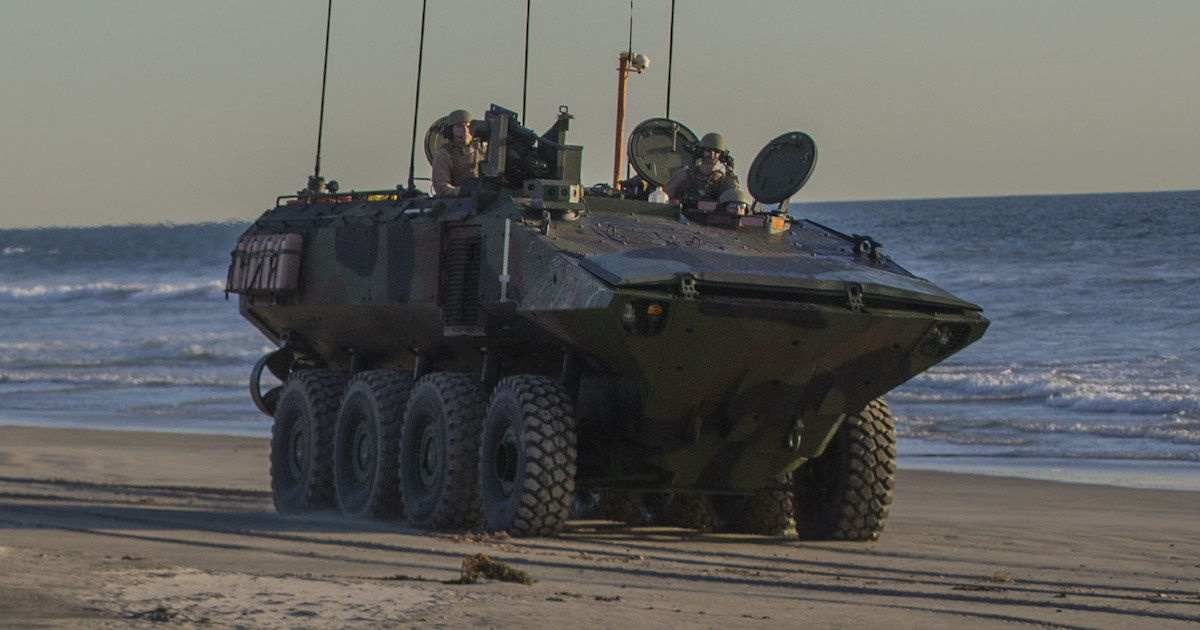

The Marine Corps plans on fielding its first batch of Amphibious Combat Vehicles to grunts starting in October, the service announced on Monday.
The Corps’s first new amphibious vehicle since Vietnam, the ACV is expected to replace the service’s arsenal of Amphibious Assault Vehicles that have been in use since the 1970s.
As Task & Purpose previously reported, Marines with the I Marine Expeditionary Force at Camp Pendleton will be the first to receive ACVs.
“This is truly a significant moment, given the many years the Marine Corps has invested in trying to replace the AAV,” said PEO Land Systems Advanced Amphibious Assault program manager Col. Kirk Mullins said in a statement.
“While we still have work ahead of us, this is a historical first step toward delivering this materiel capability to our Marines, which is what our mission is all about.”

The Corps in June 2018 awarded $198 million in contract options to BAE Systems to produce 30 low-rate production ACV vehicles.
As Marine Corps Times noted in January 2019, the service is angling to initiate full production of some 704 ACVs by 2022 at the earliest in a deal that would total upwards of $1.2 billion.
In April 2019, Navy and Marine Corps leaders told lawmakers that a full rate production decision was scheduled for the third quarter of fiscal year 2020, with the ACV on schedule to achieve initial operational capability in the fourth quarter of that year.
News of the fielding of the ACV comes less than a month after nine crew members were killed after a legacy AAV sank during training off San Clemente Island,
Military officials have launched two separate investigations into the incident, which marked the Corps’ deadliest training accident in the history of the AAV.
Related: The Marine Corps has launched two investigations into its deadliest AAV training accident ever